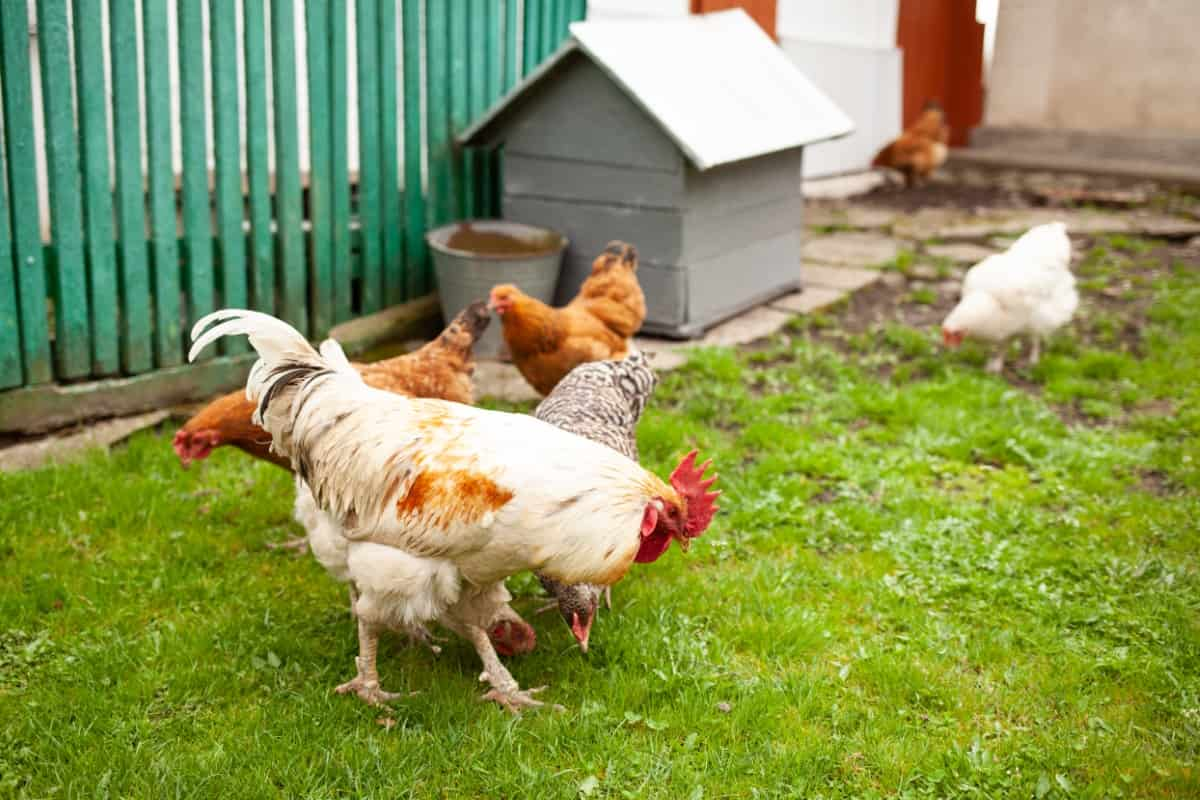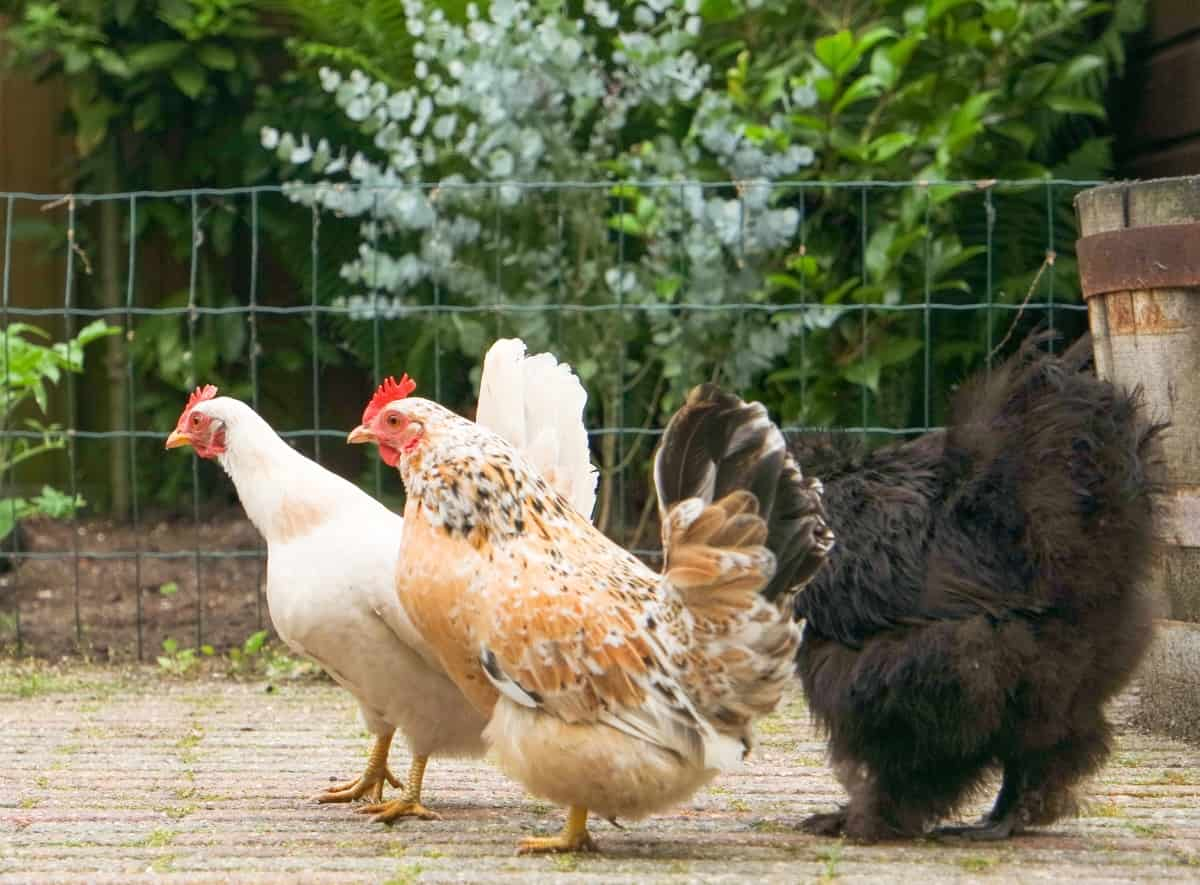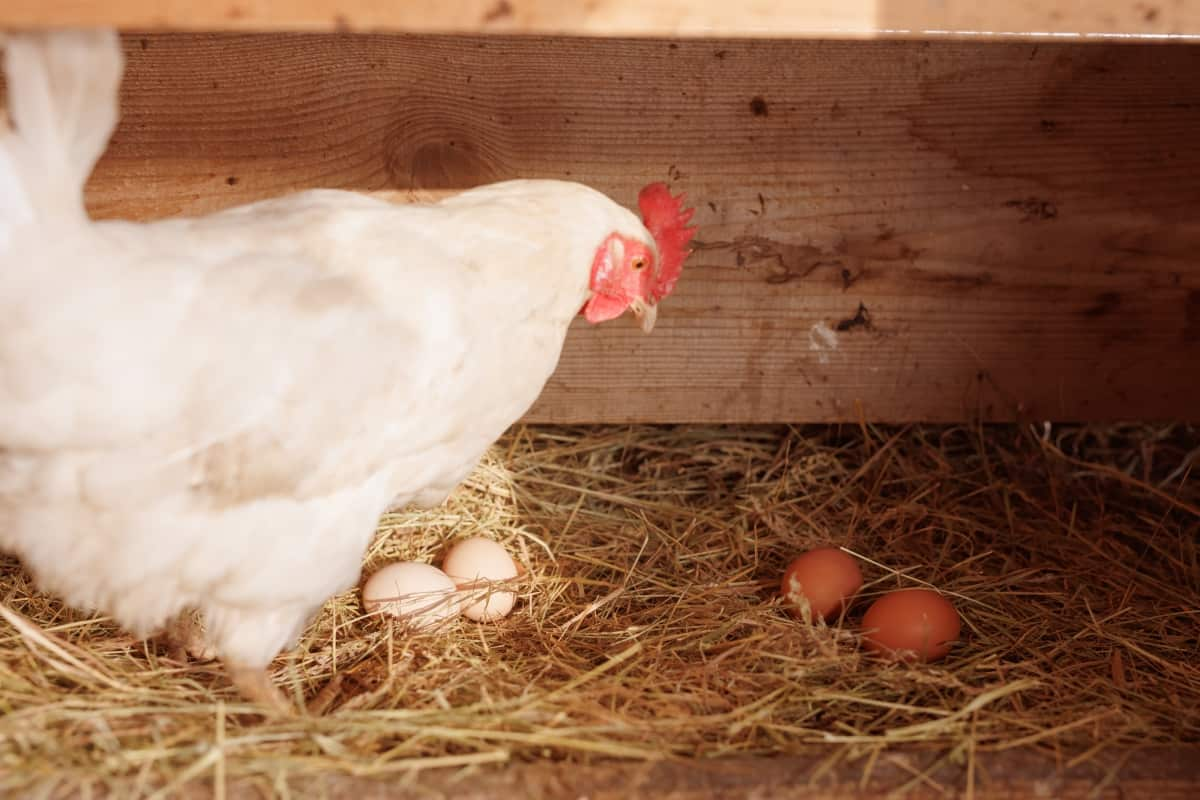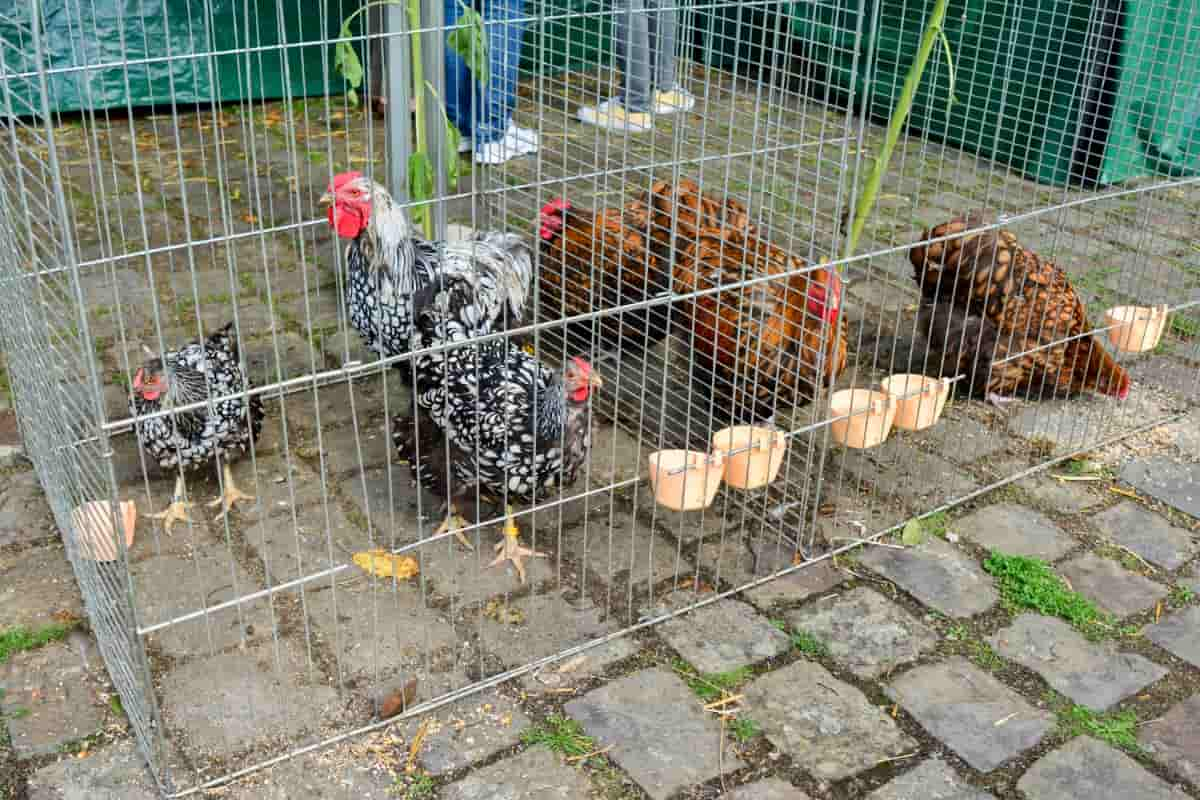Urban chicken farming, also known as backyard or city chicken keeping, has gained popularity as more people seek sustainable and locally sourced food options. Urban chicken farming demands commitment, but the rewards of a more sustainable, localized food source and the joy of tending to feathered friends make it a fulfilling venture for those seeking a small-scale, city-friendly agricultural experience.

Raising chickens in a city environment comes with its own set of advantages and challenges. Despite challenges, urban chicken farming empowers individuals to embrace a more sustainable lifestyle while navigating the balance between agrarian traditions and urban living. In this guide we will discuss Raising Chickens in the City Pros and Cons.
Raising Chickens in the City
Urban Chicken Farming: Benefits and Challenges for City Dwellers
Benefits
- Fresh Eggs: Residents can enjoy daily access to fresh, organic eggs.
- Sustainable Waste Management: Chickens consume kitchen scraps, reducing waste and producing valuable manure for compost.
- Educational Opportunities: Urban farming fosters a connection to food sources, offering educational experiences for children and adults alike.
- Local Food Production: Promotes local, sustainable food production, contributing to community resilience.
- Therapeutic Benefits: Caring for chickens can reduce stress and provide a therapeutic hobby.
Challenges
- Space Constraints: Limited space in urban areas may pose challenges for housing and roaming.
- Zoning Regulations: Local ordinances may restrict or prohibit poultry keeping.
- Noise and Odor Concerns: Neighbors may be affected by noise and odors associated with chickens.
- Predator Risks: Urban environments may expose chickens to increased risks from predators.
- Time and Commitment: Raising chickens requires time and commitment, which may be a challenge for busy urban dwellers.
Understanding Legal Aspects of Urban Chicken Rearing
- Urban chicken rearing is subject to various legal aspects, including zoning laws, health regulations, and nuisance ordinances.
- Zoning laws dictate whether chickens are allowed in specific residential areas. Health regulations may address issues like sanitation and disease prevention.
- Nuisance ordinances may govern noise and odor complaints. Compliance with these legal aspects is crucial to avoid fines or legal actions.
- Local authorities often provide guidelines, permits, or restrictions, emphasizing the importance of responsible and considerate urban chicken keeping.
The Pros of Backyard Chickens in Urban Areas: Benefits of Raising Chickens in the City
Backyard chickens in urban areas offer numerous benefits. They provide a sustainable source of fresh, organic eggs, promoting self-sufficiency. Chickens are effective natural pest controllers, reducing the need for harmful chemicals. Their waste serves as a valuable fertilizer for gardens, fostering soil health.
In case you missed it: Modern Game Chicken: Breed Profile, Characteristics, Size, Temperament, and Price

Raising chickens teaches responsibility and valuable life skills, making them an educational asset. Chickens also contribute to community building, fostering connections among neighbors through shared interests. Moreover, their gentle presence and unique personalities offer therapeutic benefits, enhancing well-being.
Managing Chicken Coops in Smaller Urban Yards: City Chicken Coop Management
In smaller urban yards, efficient city chicken coop management is crucial. Opt for space-saving city chicken coop designs and prioritize vertical space with tiered roosts and hanging feeders. Use removable trays for easy cleaning, maintaining a hygienic environment. Employ a deep litter method to control odors and enhance composting.
Incorporate mobile coops to rotate chickens and fertilize different areas. Provide ample shade and ventilation to ensure the well-being of the flock. Utilize compact nesting boxes to conserve space. Regularly monitor and adjust feeding to prevent overconsumption.
The Social Impact of Raising Chickens in the City
Raising chickens in urban areas fosters sustainability, community engagement, and food security. It encourages a connection with nature, teaching responsible animal care to city dwellers. The practice reduces carbon footprints by minimizing the transportation of eggs and promotes organic waste recycling through chicken droppings.
Additionally, sharing surplus eggs with neighbors enhances social bonds and addresses food inequality. However, challenges like noise and waste management require thoughtful urban planning. Overall, integrating chickens into city life positively impacts the environment, fosters self-sufficiency, and strengthens community ties.
Health and Safety Concerns in Urban Poultry Farming
Urban poultry farming presents health and safety concerns due to its proximity to densely populated zones. Zoonotic diseases, such as avian influenza, can easily spread to humans. Inadequate waste management may lead to unpleasant odors and attract pests, posing a public health risk.
In case you missed it: Ayam Pelung: Chicken Breed Profile, Characteristics, Temperament, Breeding, and Price

Noise and dust generated by poultry farms can affect the well-being of nearby residents. Additionally, improper handling of poultry waste may contaminate water sources, posing environmental and health hazards. To mitigate these concerns, strict biosecurity measures, proper waste disposal, and community awareness programs are essential for sustainable and safe urban poultry farming practices.
Noise and Odor Issues: Problems with Chickens in Residential Areas
- Encourage coop designs that incorporate soundproofing materials and odor-absorbing bedding.
- Educate owners on proper waste management and hygiene practices to mitigate smells.
- Implement local regulations specifying acceptable noise levels and zoning restrictions.
- Promote community dialogue through workshops, addressing concerns, and finding collaborative solutions.
- Encourage responsible ownership with penalties for non-compliance. Establishing a community liaison for conflict resolution and regular inspections can ensure ongoing adherence to guidelines.
- Balancing the benefits of urban farming with community well-being is key to successful coexistence.
Balancing City Life with Poultry Care: Time and Resource Considerations
Maintaining a balance between city life and poultry care requires strategic time and resource management. Urban dwellers must allocate dedicated time for daily tasks like feeding, cleaning, and monitoring the well-being of their poultry. Incorporating automated systems, such as feeders and coop sensors, can streamline the process.
Additionally, considering local regulations, noise levels, and space constraints is crucial. Efficient planning ensures that the responsibilities of urban poultry care harmonize with the demands of a busy city lifestyle, allowing individuals to enjoy the benefits of both worlds without compromising the welfare of their feathered companions.
Cost-Benefit Analysis of Urban Chicken Rearing
Urban chicken rearing can offer several benefits, including a sustainable source of eggs, natural pest control, and fertilizer production. However, it involves initial setup costs for a coop, feed, and other necessities. The benefits include reduced food expenses and waste disposal costs, as chickens consume kitchen scraps.
In case you missed it: Black Copper Maran Chicken: Breed History, Origin, Characteristics, Price, and Egg Production

Additionally, the potential for selling excess eggs or chicken manure can generate income. Healthier soil and reduced reliance on commercial fertilizers contribute to environmental benefits. While urban chicken rearing requires time and effort, the long-term economic and environmental advantages often outweigh the initial expenses, making it a viable and rewarding practice for urban dwellers.
Conclusion
Before starting an urban chicken farm, it’s crucial to research local regulations, consider the needs of the chickens, and communicate with neighbors to address potential concerns. Proper planning can help create a successful and harmonious urban chicken farming experience.
- Feed Your Flock for Less: Top 10 Tips to Save on Chicken Feed
- Ultimate Guide to Ossabaw Island Hog: Breeding, Raising, Diet, and Care
- Hatching Answers: The Top 10 Reasons Your Chickens Aren’t Laying Eggs
- Eggs and Economics: Breaking Down the Cost of Raising Backyard Chickens
- Defend Your Greens: Proven Methods to Keep Iguanas Out of Your Garden
- Ultimate Guide to Cinnamon Queen Chicken: A Comprehensive Guide for Beginners
- Ultimate Guide to California Tan Chicken: Breeding, Raising, Diet, Egg-Production and Care
- Ultimate Guide to Marsh Daisy Chicken: Breeding, Raising, Diet, and Care
- 10 Types of Chicken Farming Businesses You Can Start for Profits